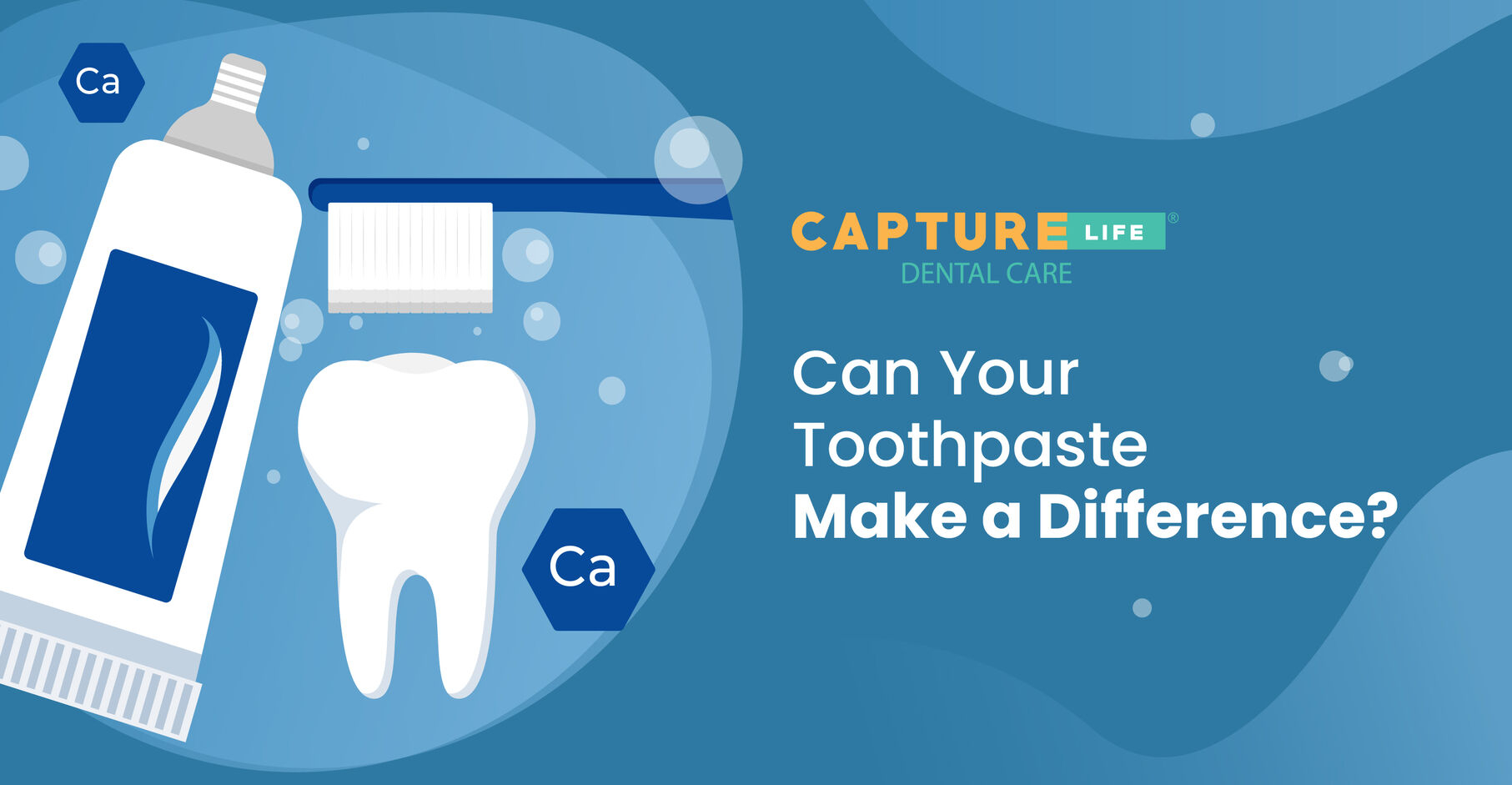
20 Mar Can Your Toothpaste Make a Difference? Decoding Ingredients for Optimal Oral Health
Concerning oral hygiene, the type of toothpaste used greatly determines oral health maintenance and the development of healthy habits related to dental care. You are bound to come across several kinds of toothpastes on any grocery store rack promising the best performance. What if you needed to know what to expect in a tube of your favorite toothpaste? At Capture Life Dental Clinic, we want you to think about all the components of your daily oral care regimen and stress how important it is to make the right decisions toward a healthier smile.
Why Ingredients Matter in Toothpaste
Toothpaste is a critical part of your dental care and does more than make your breath fresh. Each and every component is chosen for performing specific functions like general oral hygiene, cavity prevention, and strength to the teeth. Let’s break down some common ingredients that will help you make a better choice.
1. Fluoride: The Superstar Ingredient
The most significant and essential toothpaste ingredient, however, is fluoride, which makes areas where the acid has started attacking the enamel with the remineralization process; this strengthens your teeth and averts cavities. Fluoride toothpaste is a necessity for anyone worried about dental health, whether keeping your teeth in good shape or preventing decay.
2. Abrasives: Cleaning Without Damage
Abrasives, like calcium carbonate and silica, remove plaque and surface stains. This exposes smooth and clean teeth. However, excessively abrasive toothpastes can damage enamel over time, so one must be concerned with picking the right amount of abrasivity in their formula.
3. Antibacterial Agents
Those germs that may cause diseases by affecting gums and also bad breath can be reduced using a toothpaste containing antibacterial ingredients like triclosan or stannous fluoride. If you are seeking total oral care, look for these ingredients for your gums to be healthy.
4. Desensitizing Agents
The desensitizing treatments, such as strontium chloride or potassium nitrate, can work quite effectively for sensitive teeth. These prevent the pain signals from reaching the nerve endings, so you can always enjoy your favorite foods and beverages without any pain
5. Whitening Agents
Many toothpastes now include whitening ingredients such as hydrogen peroxide or baking soda. While these can make your teeth appear whiter, use these substances cautiously not to deteriorate the enamel of your teeth. For specific requirements to whiten your teeth, you may consider incorporating professional procedures in your dental treatment offers.
What to Avoid in Toothpaste
Even though toothpaste contains a majority of healthy content, some prove to be helpful but harmful sometimes. Here is the list of warnings:
- Sodium Lauryl Sulfate: This foaming agent is notorious for irritating delicate gums and bringing on canker sores in some cases.
- Artificial sweeteners: Ingredients like saccharin add sweetness without adding any positive attributes to the health of dental areas.
- Harsh Abrasives: This was also explained, whereby overly abrasive toothpaste could damage the enamel, which then caused heightened sensitivity.
Matching Toothpaste to Your Needs
Your toothpaste is designed to meet the needs of the individual for his or her specific oral hygiene requirements. Consider these scenarios:
- Check out toothpaste which contains fluoride and prevents cavities.
- Select a desensitizing formula for teeth that are sensitive.
- Whiter Smile: Use toothpaste that contains some gentle whitening ingredients.
- Gum health: toothpaste that has antibacterial properties may be advisable.
Incorporating Toothpaste into a Holistic Routine
Toothpaste is not enough for keeping your oral cavity clean. You need to give in a correct brushing technique, regular flossing exercises, and regular dental checkups to ensure maximal oral hygiene. To achieve this:
- Brush your teeth twice a day for at least two minutes.
- To avoid enamel damage use a soft-bristled toothbrush
- In an interval of every three months change the old toothbrush to a fresh one.
- It’s even better if kept ahead of issues. Clean and check regularly.
Conclusion
It can affect your overall oral health when you carefully choose your toothpaste. You may be able to ensure a more effective oral hygiene regime by knowing what it is made of and modifying it to fit your unique needs. To provide comprehensive care, couple this with regular dental checkups. At Capture Life Dental Clinic, we work to help you achieve the best possible dental hygiene and a smile that you can be proud to display. Book an appointment now to start getting better dental care!

